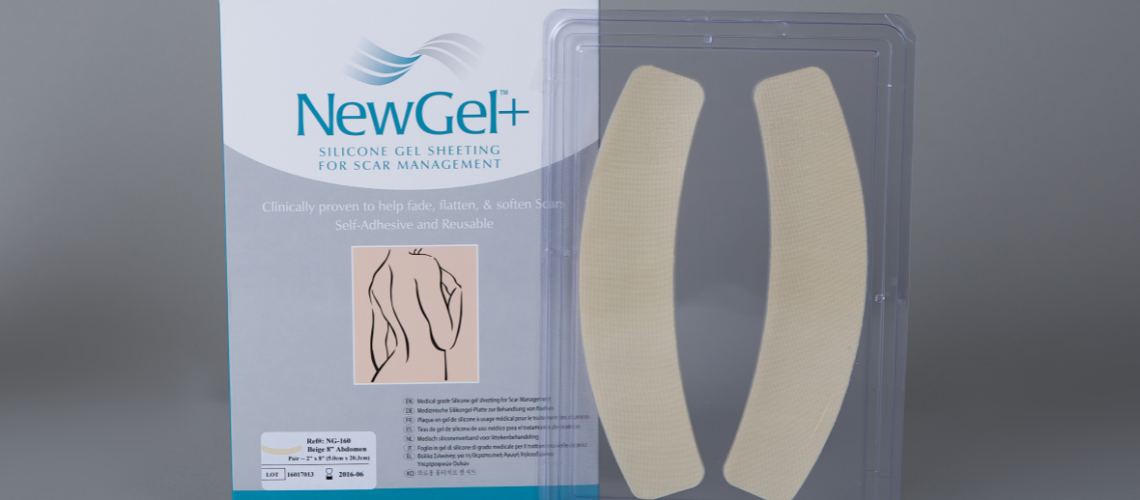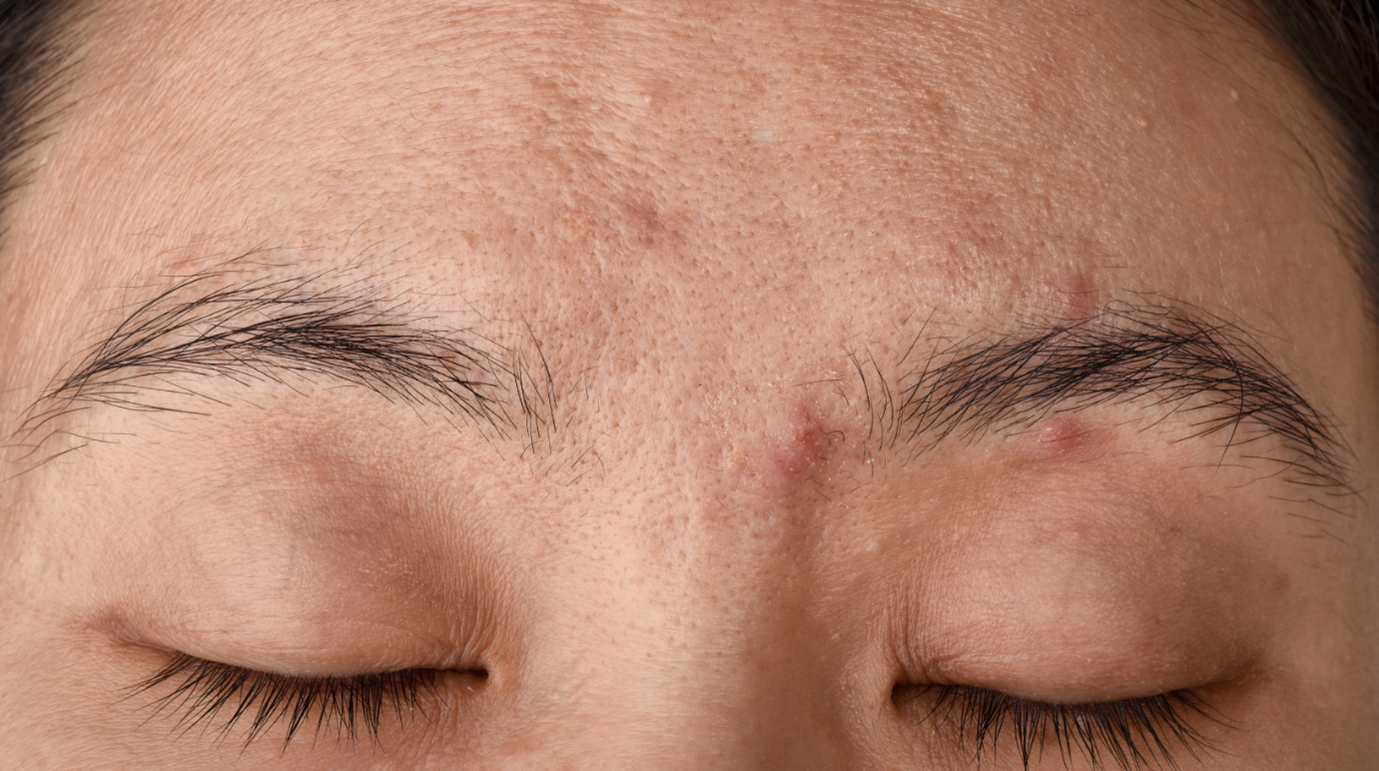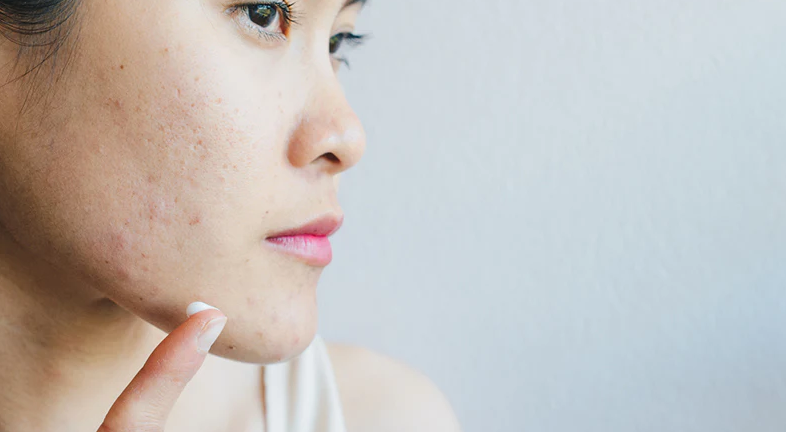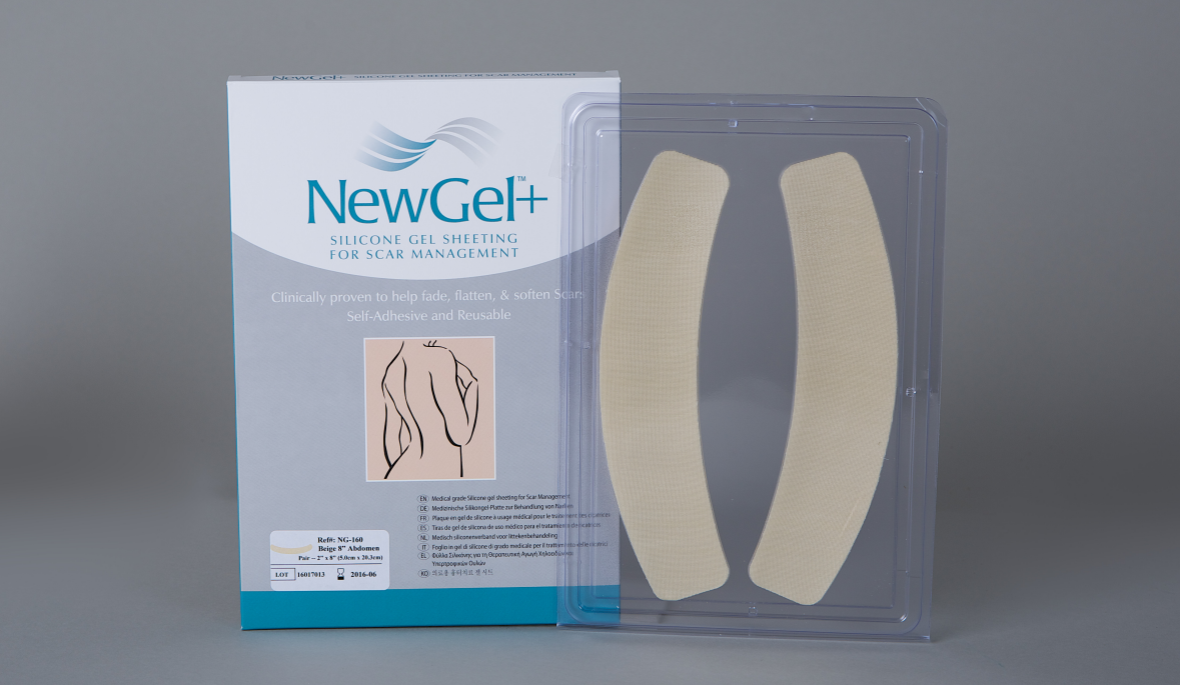A common complaint after a C-section is the sensitivity of the scar. Many women experience an unpleasant tingly sensation when clothing or other materials rub against the scar. Some women may feel sensitivity during certain movements, such as lifting the baby or reaching overhead. The scar may also feel tight, itchy, and even painful.
WHY DO C-SECTION SCARS BECOME SENSITIVE?
After any surgical incision, the body begins a natural healing process to seal the wound. Wound healing is achieved through four precise and highly programmed phases: hemostasis, proliferation, inflammation, and tissue remodeling. (J Dent Res. 2010)
Hemostasis means to stop the flow of blood, which is accomplished when the doctor seals the wound with staples, stitches, or surgical glue.
The next step in the wound healing process, proliferation, means that the cells around the wound begin multiplying rapidly. The margins around the wound grow and migrate inwards toward the base. As the cells unite at the center and attach, they contract to pull the wound shut. This process creates a mechanical stress that activates various nerves, causing the scar to feel sensitive, itchy, and sometimes painful.
As part of the normal wound healing process, inflammation will occur as the body recruits’ immune cells to clear away damaged cells and begin the tissue remodeling process. Inflammation will appear as redness and slight swelling in the wound area.
The final stage of wound healing is tissue remodeling, a complex process that can last anywhere from several months to years. The main aspect of tissue remodeling as it relates to scar formation is collagen production. Collagen is a structural protein that gives the skin firmness and elasticity. While collagen is necessary to seal the wound, if the body produces too much collagen a raised, discolored scar can result. These can either be hypertrophic scars or keloids.
Some C-section scars can be more sensitive than others. For instance, keloid scars are known to cause sensitivity and other uncomfortable sensations. As opposed to hypertrophic scars, keloids grow past the original margins of the scar, resulting in a raised, discolored scar that often has a lumpy appearance. Keloid scars may be itchy and cause discomfort, tenderness, or possibly irritation from clothing or other sources of friction. Left untreated, keloid scars can continue to thicken and grow indefinitely.
HOW NEWGEL+ C-SECTION STRIPS CAN HELP
NewGel+ C-Section Strips offer a safe, effective, non-invasive method to reduce sensitivity and improve the appearance of C-section scars. The strips were developed by doctors, specially formulated with medical grade polymerized siloxanes (silicone gel) and the option of either a clear or beige Lycra (Spandex) backing. This combination works to heal wounds through a combination of occlusion, hydration, elevated skin temperature, and continuous light pressure.
The occlusion provided by the strips seals the wound from exposure to air and bacteria. According to a publication in the Journal of Cutaneous and Aesthetic Surgery, this is important because bacteria have the ability to induce excessive collagen production. Unfortunately, when the body produces too much collagen, the result is a raised, discolored scar. The silicone gel also helps to heal the wound by increasing hydration of the stratum corneum (the uppermost layer of the skin). Since the stratum corneum of a new scar is not fully developed, it loses water easily. Thus, maintaining proper hydration is key to proper wound healing as well as minimizing scar formation.
The NewGel+ C-Section Strips have been clinically proven to reduce, flatten, fade, and smooth scars as well as help with a sensitive C-section scar. These strips were designed to be soft, cushiony, and able to be worn beneath undergarments, thus protecting a sensitive C-section scar from rubbing against your clothes. Case studies show that the NewGel+ Strips can help to reduce redness, itchiness, tightness, and pain of a C-section scar, with women seeing positive results in as little as 3 weeks.
Shop the NewGel+ C-Section Strips now to support scar in comfort.
Trust NewGel+ to soften, flatten, and fade your scar
1300 294 649 // sales@ssau.au // Supplying medical products to the healthcare market





